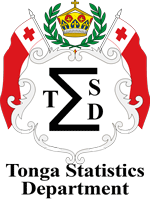


Latest survey STEPS was done in 2017, as a result of a collaborated work of the Ministry of Health and the Tonga Statistics Department, where the thematic of the questionnaire was done by MOH with information on Tobacco, alcohol and kava consumption; Diet; Physical activity; Raised blood pressure, diabetes, cholesterol, cardiovascular diseases, lifecycle advise, cervical cancer and contraceptive use history; Physical and biochemical measurement and the Level if difficulties; and lastly their Access to health services. TSD came in and set up the survey data collection and processing resources, run survey skills and technical training, monitor the data collection and giving technical survey support.
Sample framework was prepared by TSD and enumerators and supervisors where 95% MOH staff.
STEPwise approach to noncommunicable disease risk factor surveillance (STEPS)
The STEPS approach focuses on obtaining core data on the established risk factors that determine the major disease burden. It is sufficiently flexible to allow each country to expand on the core variables and risk factors, and to incorporate optional modules related to local or regional interests.
Purpose:
The WHO STEPwise approach to noncommunicable disease (NCD) risk factor surveillance is designed to help countries build and strengthen their surveillance capacity.
Design:
The STEPS Instrument covers three different levels of “steps” of risk factor assessment. These steps are:
1. Questionnaire
2. Physical measurements
3. Biochemical measurements
